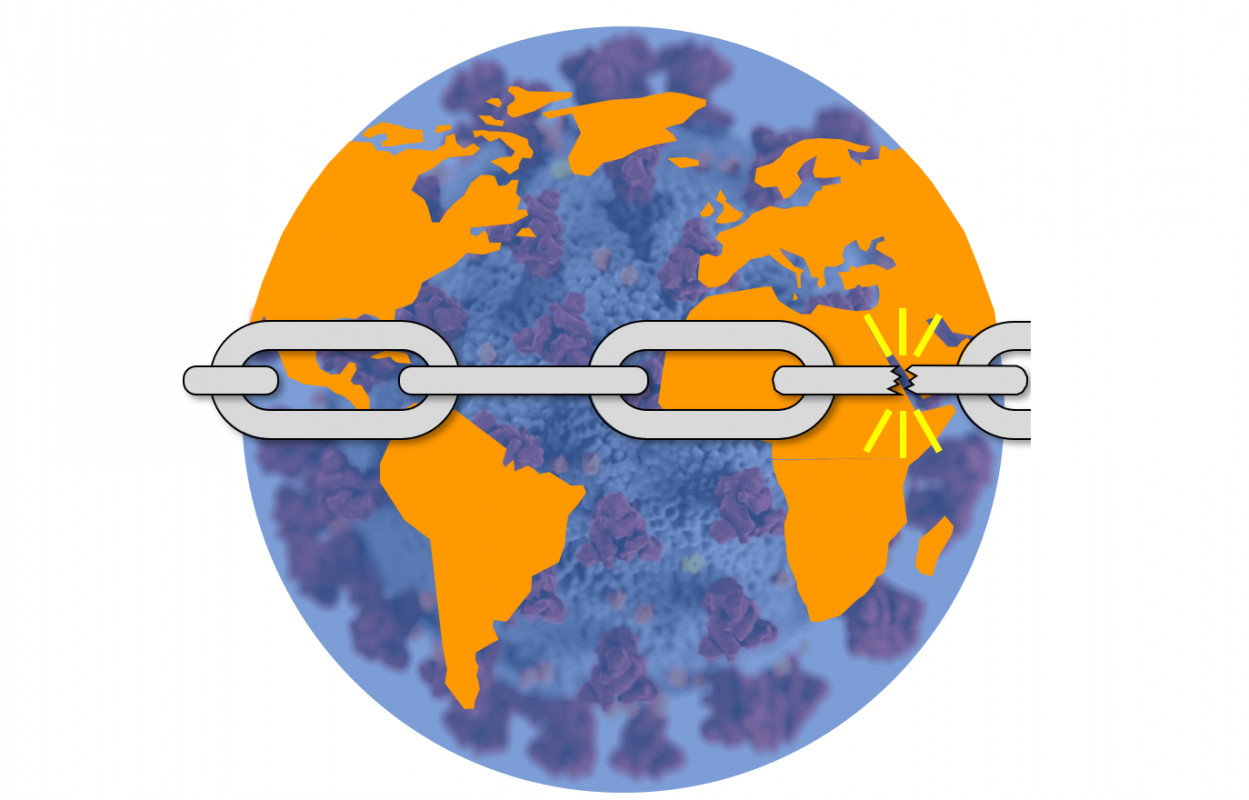Blood Warming, General, Updates, Whole Blood
COVID: Weak Points Exposed and Lessons Learned
Saying that the past two years have been unpredictable is an understatement. In the winter of 2019 our world changed in a way we could not have foreseen. COVID-19 puts a huge strain on our economy and healthcare system. While very unfortunate, crises such as COVID expose us where we are weakest. During the pandemic we have seen shortages in manufacturing supplies such as computer chips and other products. This brings up a great point of another consideration to take into account when purchasing a new piece of medical equipment. This article will focus on blood/fluid warmers, however regardless of the product you are in the market for, these same considerations will apply.
The cause for supply shortages is multifaceted. Some reasons being increased demand for the product, as is the case for plastics. COVID put a huge demand for plastics just within the medical industry alone. The increased need for ventilators and disposable tubing and PPE are just a few of the products that caused the increased demand. Other factors include decrease in supply due to material shortages or low workforce from manufacturers. We saw that many agencies mandated that all non-essential laborers stay home to slow the spread of the virus. Those companies that did stay open often operated below max capacity in the factories to promote social distancing between employees. In reality all these factors combined resulted in shortages in vital supplies.
Of all the materials to have a shortage, plastics would probably be the last guess for a lot of people. Yet that is what we are seeing today. Due to raw materials shortage and high demands, it’s becoming increasingly difficult for companies to maintain production of plastic disposables. This is important to consider because companies such as 3M utilize an all plastic consumable in their blood warmers. Consumers, such as EMS agencies and hospitals are having increased difficulty in obtaining disposable sets for their warmers. This should raise immediate concern. Often in trauma situations, mass transfusion protocols are necessary. Blood given rapidly must be warmed to body temperature prior to being infused into the patient. If you have no tubing set for your blood warmer, how can you warm blood and save your patient’s life?
Another consumer good that is experiencing shortages is microchips. Reasons for microchip shortages are many including manufacturing plants closed due to COVID. However that’s not the only way COVID caused the microchip shortage. Consumer consumption of chips drastically increased as people were shut indoors. Purchases in laptops, gaming consoles, and other electronic devices. Car sales also were higher than what was expected. Electric vehicles are also gaining popularity of consumers and more and more automotive companies are branching into that market. As such, microchip consumption continues to increase. Another reason for the shortages is sanctions against the Chinese tech companies. With a centralized means of production, most chips are produced in Asia. Only 12 percent of chip manufacturing is conducted in the U.S. Therefore sanctions really cut into the supply of chips this year.
Yet another reason for a microchip shortage is the current shipping crisis. When the Suez was blocked, chip companies were among the many who suffered. Chip companies were unable to receive necessary materials nor able to send their goods to consumers. This compounded with decreased manufacturing capacity due to factories being shut down, increased demand from consumers wanting tech goods that use microchips, and sanctions against the world’s largest producer of microchips, we can see how all these conditions have led to a mass shortage of microchips.
Products that utilize microchips are being delayed in manufacturing. This includes blood warmers that use microchips in their disposables. Again we face the same challenge as discussed before. When utilizing a complex disposable solution for blood warming, consumers are at the mercy of manufacturers. When supply chains are interrupted, as has been the case with this pandemic, our patients suffer the cost when utilizing overly complex solutions.
So what is the answer to these shortages? One answer is to use a blood warmer that comes with a simple design, that is microchip free, and uses readily available materials to produce. QinFlow’s Warrior warming set fits that description. They do not utilize microchips and are made from materials that are easily sourced. QinFlow’s Warrior disposable uses stainless steel, PVC tubing, and EPP foam for a lightweight yet durable product. The great news is QinFlow’s line of products are also aluminum free, which is a big deal if you have been paying attention to recent recalls of infusion devices containing aluminum. QinFlow’s disposables are also competitively priced.
Another great advantage of utilizing QinFlow is that their disposable is compatible with ALL the warmers they produce. That’s right, you can use the same consumable from the Warrior lite while in the field to the Warrior AC used in operating rooms and intensive care units. This streamlines the transition of care of the patient while also reducing cost to the patient and waste produced which is great for the environment.
We see that COVID showed us that using complex solutions puts the consumer at risk of supply shortages. When opting for a simpler solution, this allows more reliability in supply chains. The engineers at QinFlow have known this for a long time. They have backgrounds in Israeli Special Operations and Search and Rescue. People from these professions know that simpler solutions are often more reliable than overly complex designs when the unknown strikes. This is why QinFlow has not experienced the shortages that other companies offering more complicated designs have suffered. This allows them to keep supplying their customers who are saving lives on the front lines the peace of mind of a reliable product in these uncertain times.

